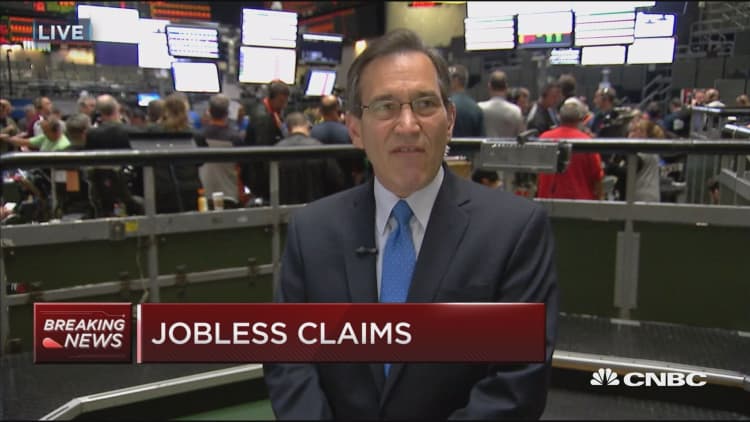
The number of Americans filing for unemployment benefits fell last week to near a 43-year low, suggesting labor market resilience even though hiring slowed sharply in May.
Initial claims for state unemployment benefits declined 18,000 to a seasonally adjusted 259,000 for the week ended June 18, the Labor Department said on Thursday. The drop left claims not too far from a 43-year low touched in March.
Claims for the prior week were unrevised. Economists polled by Reuters had forecast initial claims falling only to 270,000 in the latest week. Claims have now been below 300,000, a threshold associated with a strong job market, for 68 straight weeks, the longest streak since 1973.
The four-week moving average of claims, considered a better measure of labor market trends as it irons out week-to-week volatility, fell 2,250 to 267,000 last week.
A Labor Department analyst said there were no special factors influencing last week's claims data and no states had been estimated.
The claims report covered the survey period for June nonfarm payrolls.
The four-week average of claims declined 8,750 between the May and June survey periods, suggesting an improvement in job growth after payrolls increased only 38,000 in May - the smallest increase since September 2010.
Federal Reserve Chair Janet Yellen told lawmakers on Tuesday that the U.S. central bank believed last month's slowdown in payrolls gains was "transitory," noting that "several other timely indicators of labor market conditions still look favorable."
Labor market optimism is being spurred by near record high job openings, as well as the very low layoffs.
Thursday's claims report showed the number of people still receiving benefits after an initial week of aid fell 20,000 to 2.14 million in the week ended June 11. The four-week average of the so-called continuing claims slipped 4,500 to 2.15 million.

